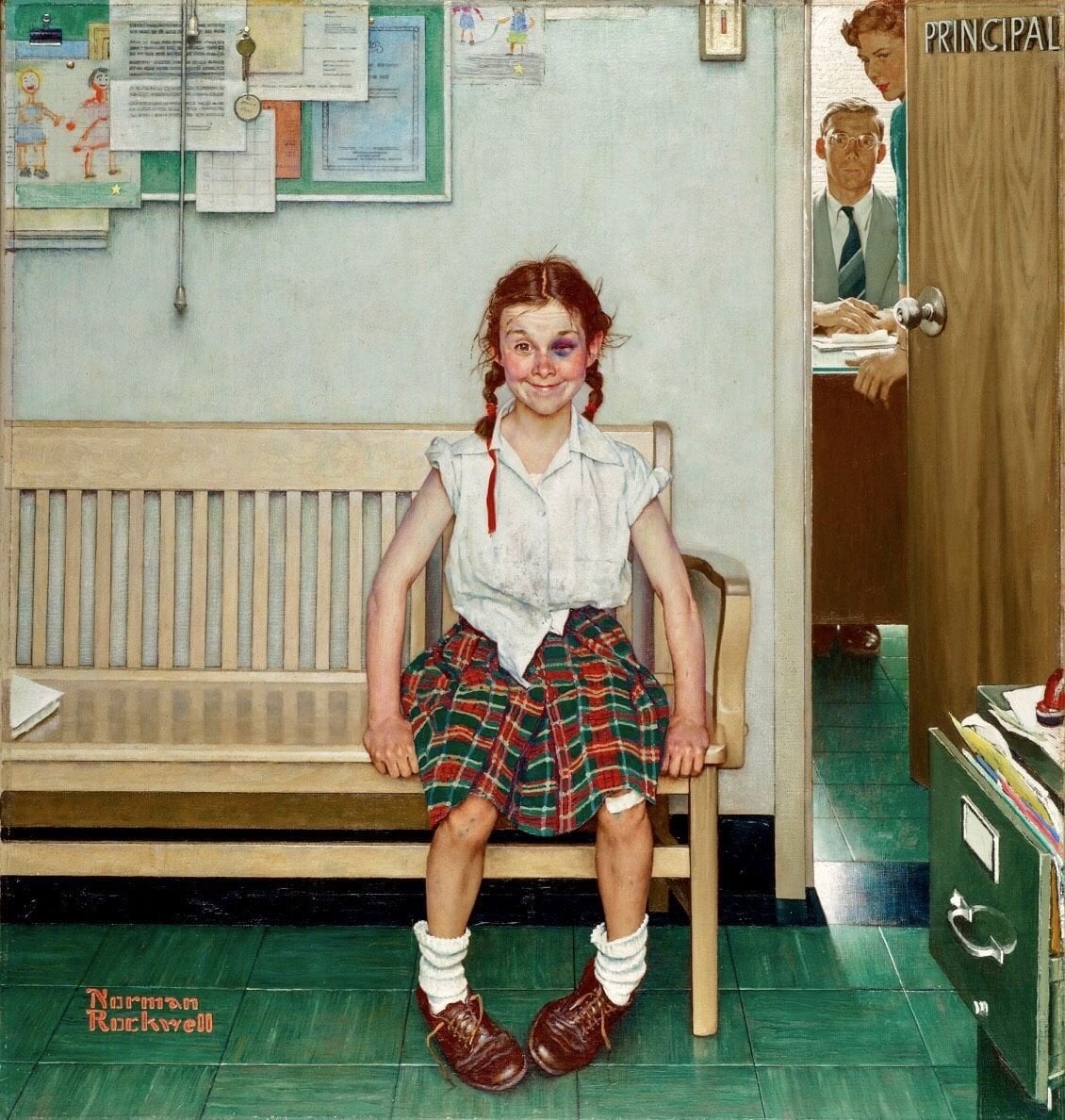Traditional Art
From dabblers to masters, obscure to popular and ancient to futuristic, this is an inclusive community dedicated to showcasing all types of art by all kinds of artists, as long as they're made in a traditional medium
'Traditional' here means 'Physical', as in artworks which are NON-DIGITAL in nature.
What's allowed: Acrylic, Pastel, Encaustic, Gouache, Oil and Watercolor Paintings; Ink Illustrations; Manga Panels; Pencil and Charcoal sketches; Collages; Etchings; Lithographs; Wood Prints; Pottery; Ceramics; Metal, Wire and paper sculptures; Tapestry; weaving; Qulting; Wood carvings, Armor Crafting and more.
What's not allowed: Digital art (anything made with Photoshop, Clip Studio Paint, Krita, Blender, GIMP or other art programs) or AI art (anything made with Stable Diffusion, Midjourney or other models)
make sure to check the rules stickied to the top of the community before posting.
view the rest of the comments


Illustration major here. Art is such an overarching term that it can pretty much be used as an umbrella term for nearly anything and everything. Etymologically speaking, Illustration just means making something clear, to communicate some idea to someone else. The concept was modernized to encompass the use of pictographs, texts, and diagrams as visual aids.
All forms of illustrations technically can be classified as pieces of art, as the definitions of art vary wildly. I've always taken art to be anything that evokes an emotion novel to either the consumer of art or the producer of the art or conveys a novel idea either back at the artist or to the consumer of art, or some mixture of these. The key thing to me is novelty, which evolves and changes based off of sociocultural norms and personal experience. Again, totally my personal opinion, and fine artists in particular would be able to nitpick this idea to death. Conversations I still enjoy when I have the energy.
Rockwell comes from a very classic Americana age of illustration. Iirc he is at the tail end of the second golden age of illustration (though my knowledge on the history is very rusty). I always preferred the work of his predecessor, JD Leyendecker, and his predecessor, Alfonse Mucha. Purely from a technical standpoint, mind you. The content of their work, to be frank, I find quite banal.
As per this particular piece, it's a simple narrative piece, obviously well executed technically in oil. The narrative is classic Rockwell. I think Rockwell has been ruined for me just because his work created a nostalgia for a time that never quite existed in America. Don't get me wrong , I think Rockwell was a stand up guy, especially for his time period.
It's just that his influence over the American Art and Illustration scene eventually ended up resonating with people who aren't looking to art for anything more than familiarity, not novelty. Essentially, it's kitsch. Rockwell unintentionally created the ideal white American past that boomers currently are nostalgic for. An ideal that has had negative ramifications for those of us who have to deal with people who vehemently insist that this idyllic Rockwellian world was the great America we should all return to.
Sorry to make this political, but art, like anything, cannot be divorced from politics. And intentional or not, Rockwell has contributed to American sociopolitical sentiments in profound ways. He practically invented modern Americana. And while it has its charm, I find it exhausting to see it everywhere.
In it's worst manifestation, Rockwell's legacy ultimately resulted in producing Thomas Kinkade, America's richest, and arguably the world's most evil painter. People like to say second most, but Hitler was always a Nazi first and foremost. Calling Hitler a painter is like calling Ronald Reagan an actor. Like yes, but maybe that's not what he should be remembered for?
Anyways, the conflation between Illustration and other Artistic disciplines, as well as with differentiating between illustration and art, is a topic of discussion I find very intriguing and one rife with controversy, due in no small part to the ambiguity surrounding the definition of art in general.
Really interesting insights, and good point about the nostalgia for a past that never existed. The work of his predecessors is very nice aesthetically, and Mucha's seems much more like what that professor would have gladly called art. A lot more stylization at least. I've always held kincade's work in disdain because it struck me as the dullest pablum imaginable, but I hadn't heard he was also evil. The invidious link didn't work for me (I'm a filthy yt premium user) but I'll look up more about that for sure.
Yeah. Please keep in mind I mean no shade at Rockwell himself. I just think he had an unintended negative impact on American culture.
The video in question was part one of a Behind The Bastards Two Parter. Here are the raw links:
https://www.youtube.com/watch?v=QFBQMEn_0rw
https://www.youtube.com/watch?v=b2Jx5WDtzts
Edit: As an aside, if you want to see an artist who I think was equal parts "true artist" and "true illustrator", I'd look at Edgar Degas.
Oh cool I've been slowly catching up on btb for a while now, I just haven't made it to that one yet. It's a great podcast in general so I'll look forward to getting the dirt on him. I remember Degas from an art appreciation class but I don't immediately recognize any of the works on the image search.